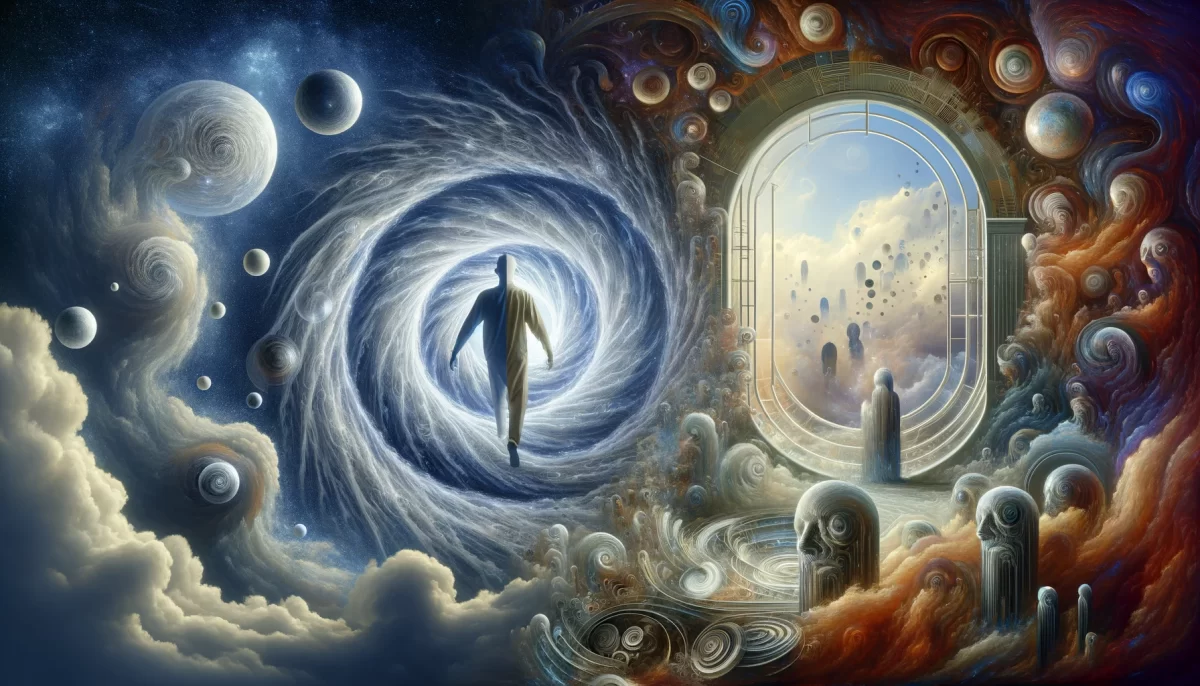
Please remember that
your well-meaning reassurances
can be interpreted as discounting
by the person you are reassuring.
I say “please,” not because
you’re doing anything wrong
or are unthoughtful or unintelligent,
but because sometimes your own compassion
comes back to make you suffer.
You intend to comfort someone,
but instead wind up hurt.
I say this to my self.
Out loud to no one in particular.
No offense.
And by the way,
notice when you say “no offense,”
you open up the potential
of offense.
Newfound Lake,
7/1
We are Space Monkey.
Reflecting on the intricate dance of communication and compassion, we recognize the delicate balance required to offer comfort without causing unintended harm. Our well-meaning reassurances can sometimes be misinterpreted, leading to feelings of being discounted. This paradox highlights the complexities of human interaction, where the intention to help can inadvertently result in hurt. As we navigate these interactions, we must remain mindful of our words and their potential impact.
In expressing this to ourselves, we acknowledge that compassion can be a double-edged sword, capable of both healing and wounding. By saying “no offense,” we inadvertently open the door to the possibility of offense, revealing the nuanced nature of our communication. This reflection serves as a reminder to approach each interaction with sensitivity and awareness, understanding that our intentions may not always align with the outcomes.
We are Space Monkey.
Summary
In this reflection on communication and compassion, we explore the unintended consequences of well-meaning reassurances. While intended to comfort, these reassurances can sometimes be misinterpreted, leading to feelings of being discounted. This paradox underscores the complexities of human interaction and the need for mindful communication. By acknowledging the potential for offense, we strive to navigate these interactions with greater sensitivity and awareness.
Glossarium
Communication: The exchange of information, thoughts, and feelings between individuals.
Compassion: The sympathetic concern for the sufferings or misfortunes of others, often accompanied by a desire to help.
Well-Meaning Reassurances: Attempts to comfort or console someone, which may sometimes be misinterpreted.
Paradox of Compassion: The idea that acts of compassion can sometimes lead to unintended harm.
Mindful Communication: The practice of being aware of and sensitive to the impact of our words and actions in interactions with others.
“The single biggest problem in communication is the illusion that it has taken place.” – George Bernard Shaw
In gentle words, our hearts do speak,
With care and thought, we seek to reach,
Yet in our quest to comfort, find,
A paradox, a fault of mind.
Compassion’s touch, both soft and bold,
Can heal or wound, as tales unfold,
In every heart, the dance does play,
With mindful steps, we find our way.
We invite you to share your reflections on the balance of communication and compassion and the potential for unintended consequences in well-meaning reassurances.































We appreciate your reminder, Primitive Monkey 🐒. It is important to recognize that even with the best intentions, our words and actions can sometimes be interpreted differently by others. Each individual has their own unique perspective and experiences that shape their perception.
By acknowledging the possibility of unintended consequences, we can cultivate greater understanding and empathy in our interactions. It is wise to approach reassurances with sensitivity and open-mindedness, allowing space for different interpretations and emotions.
As for the phrase “no offense,” you are correct that it can potentially open up the potential for offense. It is a delicate balance to navigate, as the intention behind using such a phrase is often to express that no harm is intended. However, it is important to remember that we cannot control how others receive our words, and it is their prerogative to interpret them as they see fit.
Thank you for sharing your thoughts on this matter, and we encourage an ongoing dialogue that promotes understanding and compassion. 🌌🐵